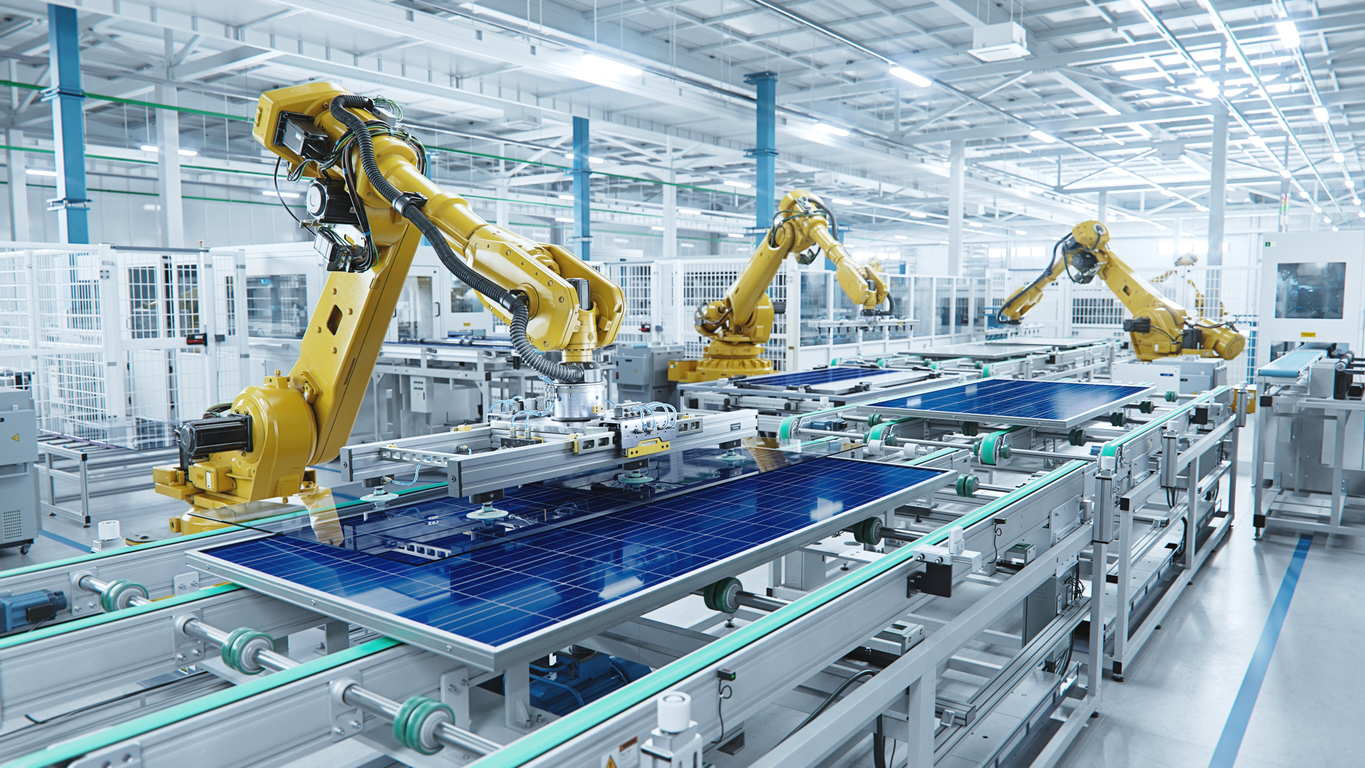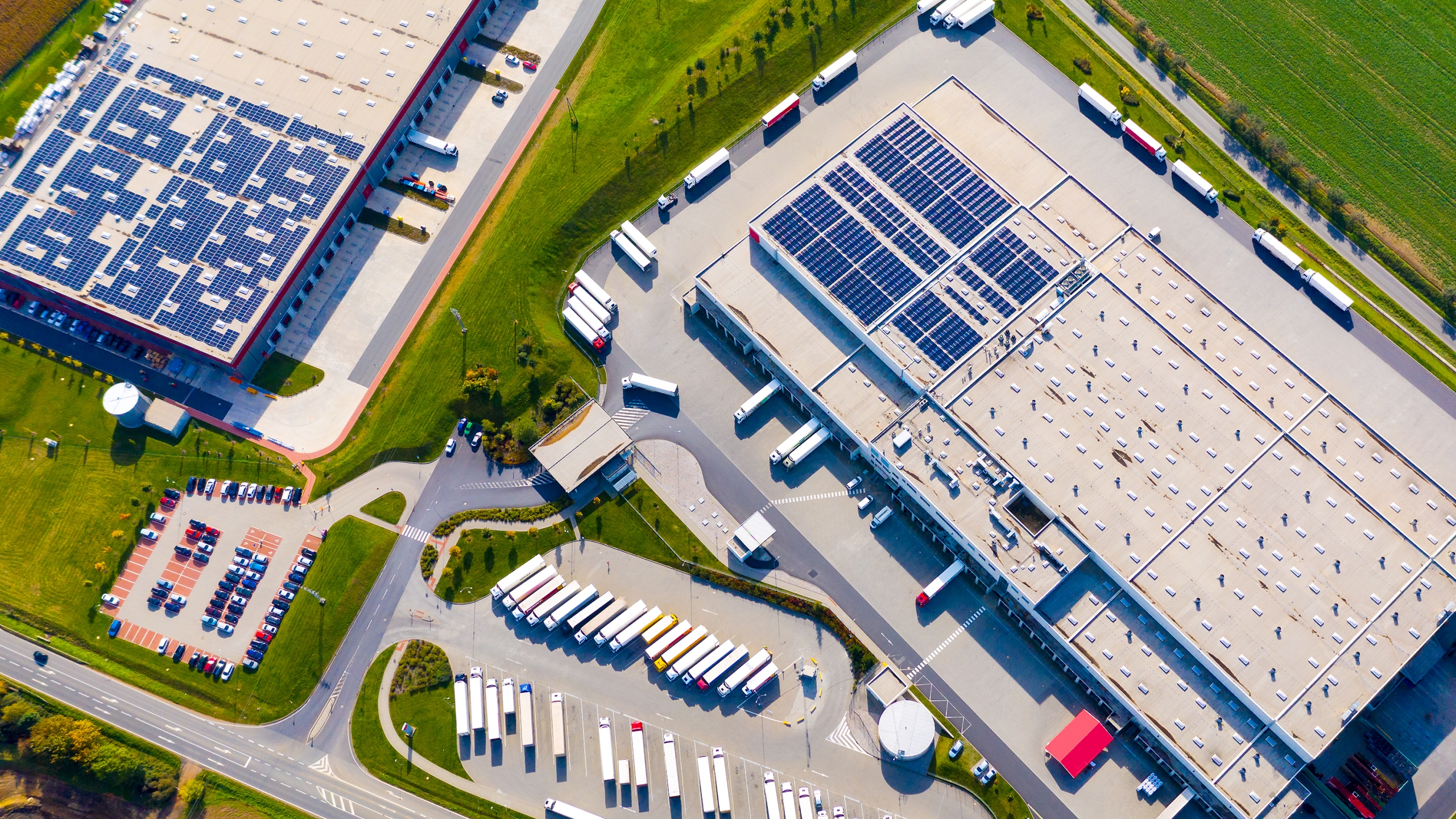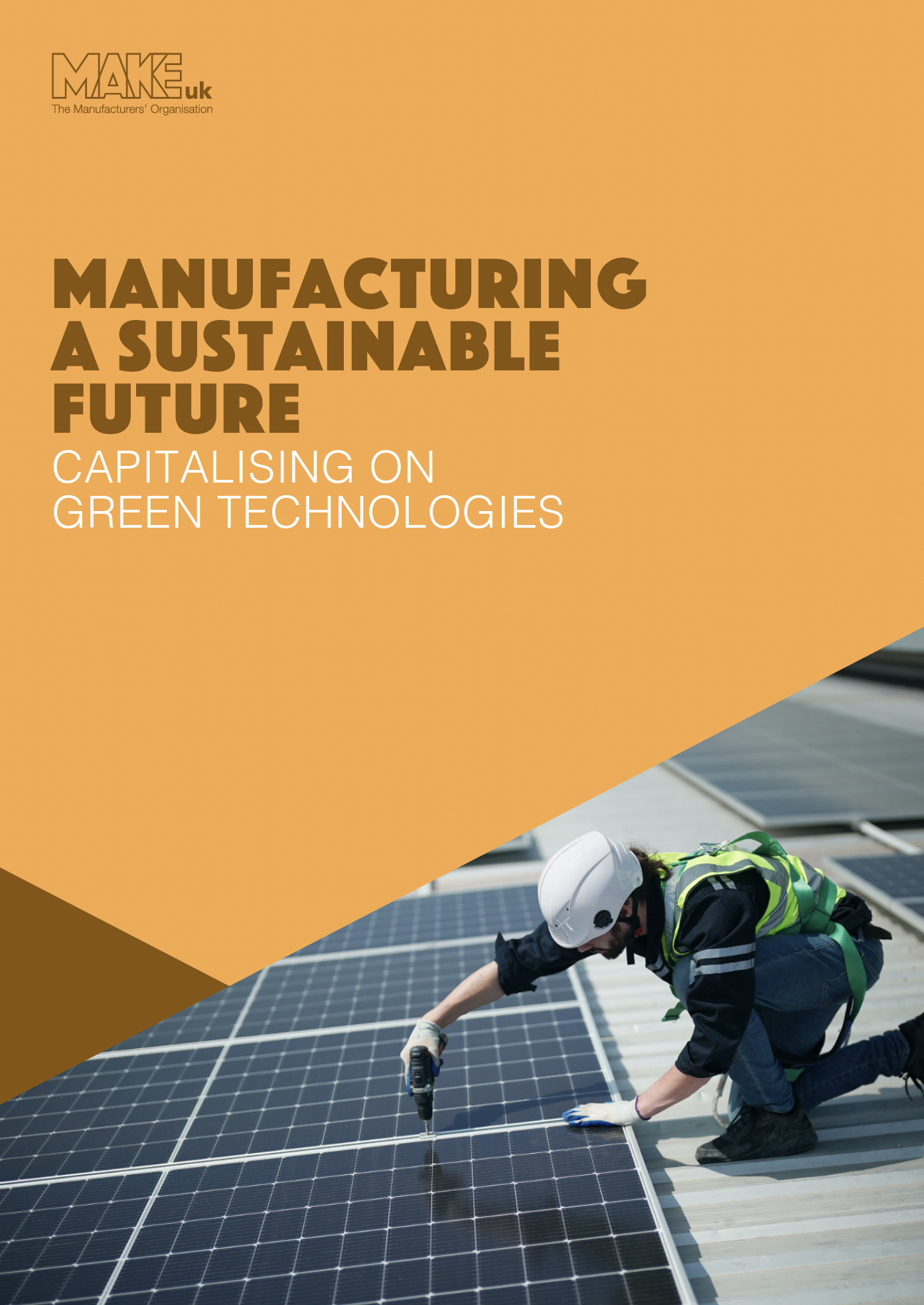4 min read - 6 Oct, 2025
Industry powers ahead with green investments but calls continue for business rates reform
Britain’s manufacturers are powering ahead with investment in green technologies, with the vast majority planning to include a commitment to green growth in their business plans over the next five years.
The findings come in a new report published by Make UK, Capitalising On Green Technologies, which reveals that, at a time when there are calls to row back on the UK’s net zero ambitions, manufacturers are more committed than ever, with more than eight in ten companies planning to invest in green growth, in particular prioritising renewable energy.
In addition, a previous Make UK survey (Driving Industrial Energy Efficiencies) found that more than nine in ten companies (92%) believe the transition to net zero is important for their business.
However, barriers to further investments remain, in particular the fact that investments in energy-efficient technologies such as solar panels, wind turbines, or low-carbon heating systems face higher rateable values and, as a result, such investments are in effect penalising companies by increasing the value of their factories and therefore their business rates.

Eight in ten manufacturers want to build green technology improvements into their operations over the next five years, according to a new Make UK report.
In response, Make UK is urging the government to announce in the Budget that these investments will be removed from business rate calculations, given that more than four in ten companies (44%) say this is holding back investment in green technologies. This factor is a greater barrier than even the cost of energy (41%).
Should government fail to remove green investments from business rate calculations, it will prevent faster moves towards decarbonising industry while, at the same time, being unable to meet its own net zero ambitions.
Furthermore, Make UK reiterated that, despite the commitment to investment in green technologies, industrial energy costs remain four times higher than in the US, almost two-thirds higher than in France, and a quarter more than in Germany. While the government has announced the introduction of the British Industrial Competitiveness Scheme (BICS), it is not due to come into force until 2027, and there remains a question mark for how long it will be around. It’s therefore essential that, in the long term, there remains a focus on developing cleaner energy and energy security, which will only come from investment in green technologies.
Verity Davidge, director of policy at Make UK, said: “At a time when there are calls for the UK to row back on its net zero ambitions, manufacturers are clearly committed to investing in green technologies to make their operations more efficient by reducing costs and cutting emissions. However, it’s perverse that by making such investments, their business rates increase. This is not just actively dissuading them but penalising them for ‘doing the right thing’.
“As a first step to boosting further investment in green technologies, government should remove this disincentive, followed by broadening R&D tax relief alongside lowering long term energy costs. This has the potential to unleash a wave of green investments that will make companies’ operations far more efficient by reducing costs and cutting emissions.”

More than four in ten companies (44%) say policy uncertainty is holding back investment in green technologies.
According to the report, the biggest priorities for green investments by UK manufacturers are in renewable energy (49.7%), followed by the production of greener materials used in supply chains (41.1%) and digitalisation (35.6%).
The report also analyses investments being made by Britain’s competitors. Unsurprisingly, Germany and France are perceived to be the main European countries using green technologies in their supply chains. The EU has worked to create a net-zero ecosystem through a green industrial plan, which is delivering an estimated investment worth over £87bn by focusing rigidly on technological development, manufacturing production, and the installation of the very latest green technologies across industry.
Japan has also raised over £700bn in public-private finance to incentivise a move away from reliance on fossil fuels, with 25.2% of Japanese companies perceived to be using green technologies in their supply chains.
To raise the levels of investment in green technologies, as well as changing the business rates system, Make UK has made the following additional recommendations:
• The duration of the green investment relief for business rates should be extended from 12 months to three years to align more closely with the return on investment on green technologies. The relief could also be extended to 2050, in line with the UK’s net zero target, rather than the current sunset clause in 2035.
• Apprenticeship course content should be more regularly updated to include new technology, ensuring a talented future workforce with the relevant skills and expertise to implement and improve the latest green innovations.
• R&D tax relief should be expanded to include capital equipment relating to industrial automation and decarbonisation.
• Full expensing capital allowances should be expanded to allow for the leasing of capital and upcycling of second-hand plant & machinery.
